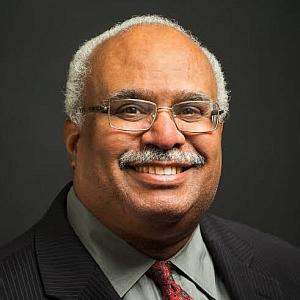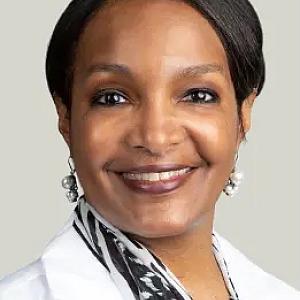Reporting on the Health Equity Backlash
The growing movement to combat deeply entrenched inequities in health care has run up against massive roadblocks, as the Trump administration guts funding and support for federal health equity programs with a barrage of executive orders. President Trump has ordered federal agencies to terminate DEI-related offices, programs and grants, and he revoked nearly 80 executive actions from the prior administration aimed at advancing diversity and equity. (Since this webinar, a federal judge has ordered some NIH grants focused on health equity to be restored, pending appeal.) Federal websites were scrubbed of any mention of what could be deemed DEI and over 100 words including “race” and “disparities” were put on a watchlist. Meanwhile, key government data-gathering and programmatic efforts to track and prevent unequal outcomes have been halted or curtailed. What does this all mean for the broader effort to unwind the health care disparities so starkly revealed by COVID-19 and the social movement that followed the police murder of George Floyd? And how can reporters get a handle on the magnitude of these reversals in their communities given all the upheaval? In this webinar, we’ll survey the dramatic changes to health equity programs, explore the early outcomes for health care systems, and identify reporting opportunities for relaying the human impacts of these abrupt shifts.
This webinar is free and made possible by the generous support of the Commonwealth Fund and The California Endowment.
Panelists

Dr. Georges C. Benjamin, MD, has served as the executive director of the American Public Health Association (APHA), the nation's oldest and largest organization of public health professionals, since 2002. He came to that post from his position as secretary of the Maryland Department of Health and Mental Hygiene, where he played a key role developing Maryland's bioterrorism plan. Benjamin became secretary of the Maryland health department in April 1999, following four years as its deputy secretary for public health services. Benjamin, is a graduate of the Illinois Institute of Technology and the University of Illinois College of Medicine. He is board-certified in internal medicine and a fellow of the American College of Physicians. He is the author of over 90 scientific articles and book chapters. Benjamin also serves on the boards of Research America, Partnership for Prevention and the Reagan-Udall Foundation. He is a member of the Institute of Medicine of the National Academies of Science.

Usha Lee McFarling is a national science correspondent for STAT News, covering the impact of race and racism on science and medicine. She previously reported for the Los Angeles Times, Boston Globe, Knight Ridder Washington Bureau and the San Antonio Light, where she covered killer bees, bat rabies outbreaks and cases of leprosy linked to armadillo taxidermy. Her work on the diseased state of the world's oceans earned the 2007 Pulitzer Prize for explanatory journalism, and her reporting on structural racism in medicine won the 2021 award for beat reporting from the Association for Health Care Journalists. She graduated from Brown University with a degree in biology and later earned a master's degree at UC Berkeley. She was also previously an artist-in-residence at the University of Washington.

Dr. Monica Peek specializes in general internal medicine and preventive health for adults at the University of Chicago Medicine, where she serves as the Ellen H. Block Professor of Health Justice. She also serves as the associate director of the Chicago Center for Diabetes Translational Research. Dr. Peek has a particular interest in reducing health care disparities and concentrates these efforts on diabetes care and breast cancer-screening education for African American patients. As principal investigator on two multi-year clinical studies, Dr. Peek is working on improving diabetes care and medical outcomes for patients on the South Side of Chicago. In her role as one of two inaugural Faculty Fellows in the Bucksbaum–Siegler Institute for Clinical Excellence at the University of Chicago Medicine, she explores how racial and cultural barriers impact physician-patient relations and shared decision-making. In 2022, Dr. Peek was elected to the National Academy of Medicine. She also serves on the boards of several advocacy organizations and is regularly involved in community-based education. She is the author of more than 60 peer-reviewed publications and abstracts exploring health care disparities in minority populations.
Suggested reading
“Racism was called a health threat. Then came the DEI backlash.” By Akilah Johnson, The Washington Post
“Trump’s first 100 days seen through 5 lives: Grants terminated. Dreams crushed. Futures in the balance,” by STAT Staff
“Cancellation of NIH summer internships disrupts ‘vital’ training program for U.S. scientists,” by Usha Lee McFarling, STAT
“Day by day, how Trump is roiling science and health,” by Usha Lee McFarling, STAT
“The lasting human impact of Trump funding freeze: An 86-year-old’s ride to dialysis now feels tenuous,” by Eric Broodman, STAT
“Trump’s CMS rolls back Biden-era health equity efforts,” by Robert King, Politico
“Trump Administration Abruptly Cuts Billions From State Health Services,” by Apoorva Mandavilli, Margot Sanger-Katz and Jan Hoffman, The New York Times
“Trump wants to erase DEI. Researchers worry it will upend work on health disparity,” by Yuki Noguchi, NPR
“Elimination of Federal Diversity Initiatives: Implications for Racial Health Equity,” via KFF
“State Reported Efforts to Address Health Disparities: A 50 State Review,” via KFF
“Mass League CEO warns funding cuts could impact health access,” by Hannah Loss, WGBH
